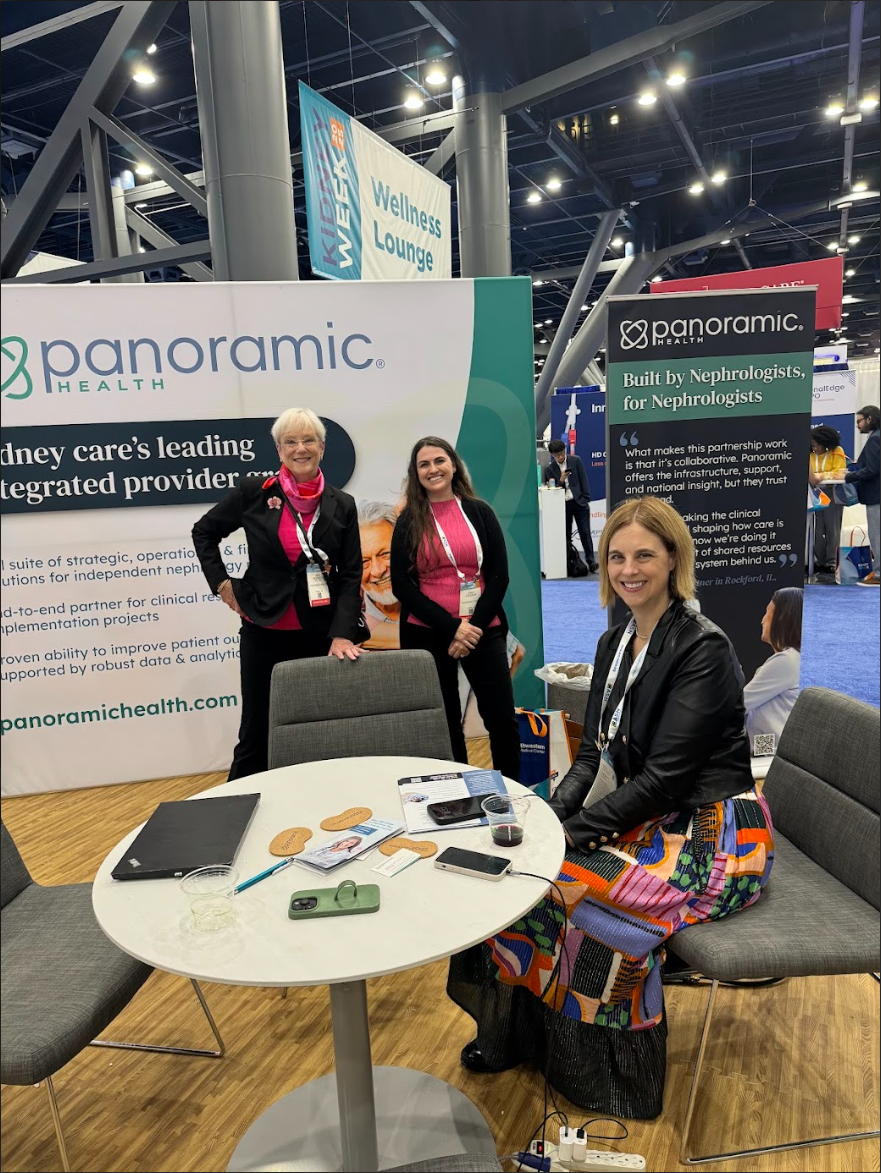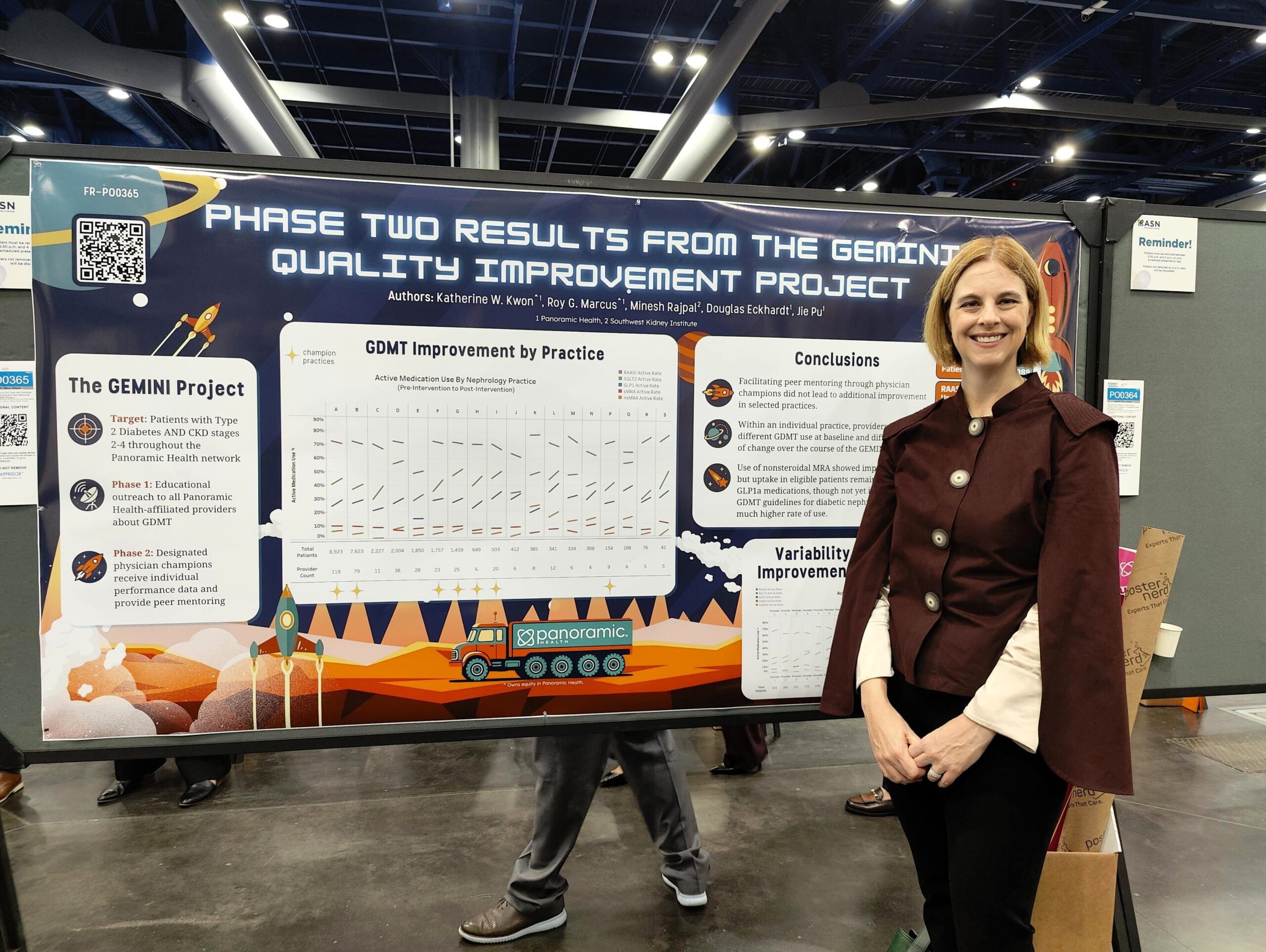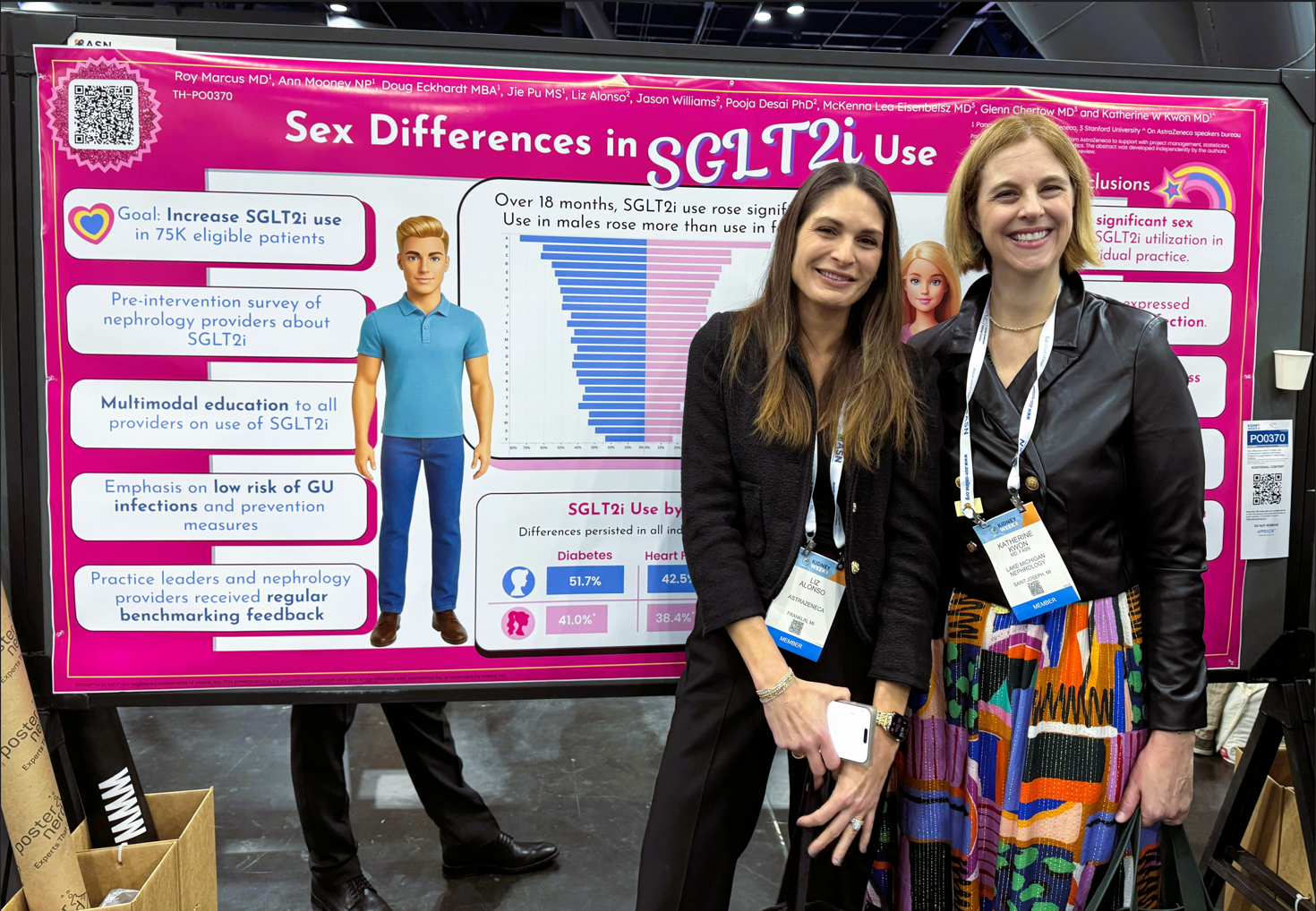Panoramic Health at ASN Kidney Week 2025: Scientific Insights and Innovation Shaping the Future of Nephrology
Panoramic Health had a strong presence at ASN Kidney Week 2025, engaging across the Scientific Exposition hall, Career Fair, and multiple poster presentations. Throughout the conference, our team connected with practicing nephrologists, medical students and fellows, innovators, and pharma sponsors to discuss the scientific trends shaping the next era of kidney care.
Panoramic Health Nephrology Engagement Across Both Booths at ASN Kidney Week 2025
Across our two booths, Panoramic Health engaged with hundreds of stakeholders shaping the future of kidney care. At the Scientific Expo, conversations with nephrologists, pharma sponsors, biotech, and digital health companies highlighted how clinical practice in nephrology is evolving.
Many expressed a need for clinically engaged partners with the scale and expertise of Panoramic Health to support innovation, clinical studies, and real-world insights.
Panoramic’s career fair booth attracted strong engagement from medical students, residents, and fellows who were exploring next-step opportunities in nephrology.
Many were interested in private practice, opportunities that would allow them to participate in clinical research, and other non-academic career paths. They were able to speak directly with physicians from Panoramic-affiliated practices about partnership tracks, professional development, and the benefits of joining a national network.
Because ASN draws a global audience, the team also met many international trainees, including J-1 waiver candidates, who were seeking U.S.-based community nephrology roles.
The conversations energized our team and offered a promising look at the next generation of nephrologists and where their interests are headed.

Glomerular Disease Innovation: A Central Theme for Panoramic Health Kidney Care

A major scientific theme was the strong focus on glomerular diseases, especially IgA nephropathy (IgAN), which dominated abstracts, poster sessions, early programs, and industry displays. The volume of IgAN research – from molecular research to therapeutic development to practical clinical applications – signals that glomerular disease is enjoying a renaissance of new therapies, bringing hope to millions. For Panoramic Health-affiliated practices, emerging therapies for IgAN and glomerular diseases call for proactive strategies, including:
- Educating referring doctors (e.g., primary care providers) to include albumin:creatinine ratio screening in routine labs;
- Taking a more aggressive diagnostic approach by considering biopsy for patients with ≥ 500 mg/day protein excretion without a clear diagnosis or using serial proteinuria measurements if biopsy is not performed;
- Developing pathways for quickly adopting new therapies, including identifying a GN expert within each practice to keep abreast of this rapidly changing field.
AI, Digital Diagnostics, and Panoramic Health’s Perspective on the Future of Nephrology Technology
Digital transformation was another major theme. A dedicated session on generative AI for kidney disease research and management highlighted its use in risk prediction, biopsy interpretation, biomarker discovery, clinical decision support, and CKD progression modeling. Conversations with AI companies, digital diagnostics developers, and biotech sponsors highlighted the demand for nephrology networks that can rapidly implement and test new tools. With 85% of partner practices using a common EMR, Panoramic Health is well-positioned to integrate AI-driven workflows and support data-driven partnerships to spur innovation.

Panoramic Health Scientific Contributions: Poster Presentations Advancing CKD and Nephrology Research

Panoramic Health contributed multiple poster presentations highlighting data from industry-sponsored HEOR projects, collaborations with academia, and physician-initiated implementation studies.
- Key Takeaway: Female patients with clear indications for SGLT2 inhibitors are prescribed these therapies far less often than men – likely due to avoidable provider and patient concerns – highlighting an urgent need to close this treatment gap so women receive the same proven benefits.
- Authors:
- Dr. McKenna Eisenbeisz — Stanford University School of Medicine
- Dr. Roy G. Marcus — Panoramic Health
- Dr. Katherine Westin Kwon — Panoramic Health
- Ann Mooney — Panoramic Health
- Douglas Eckhardt — Panoramic Health
- Jie Pu — Panoramic Health
- Liz Alonso — AstraZeneca Pharmaceuticals LP
- Jason Williams — AstraZeneca Pharmaceuticals LP
- Pooja N. Desai — AstraZeneca Pharmaceuticals LP
- Dr. Glenn M. Chertow — Stanford University School of Medicine
- Key Takeaway: Consistent provider education, clear visibility into provider- and practice-level performance data, and strong peer accountability meaningfully increase the use of guideline-directed medical therapy for patients with CKD and Type 2 diabetes.
- Authors:
- Dr. Katherine Westin Kwon — Panoramic Health
- Dr. Roy G. Marcus — Panoramic Health
- Dr. Minesh Rajpal — Southwest Kidney Institute (a Panoramic-affiliated practice)
- Douglas Eckhardt — Panoramic Health
- Jie Pu — Panoramic Health
Depressive Symptoms in a National CKD Clinical Cohort
- Key Takeaway: Among nearly 19,000 patients with non-dialysis-requiring chronic kidney disease, depressive symptoms were common, and their prevalence and severity increased progressively with worse CKD stage.
- Authors:
- Dr. Elizabeth M. Wrone — West Coast Kidney Institute (a Panoramic-affiliated practice)
- Margaret R. Stedman — Stanford University School of Medicine
- Gomathy Parvathinathan — Stanford University School of Medicine
- Dr. Katherine Westin Kwon — Panoramic Health
- Ann Mooney — Panoramic Health
- Douglas Eckhardt — Panoramic Health
- Dr. Roy G. Marcus — Panoramic Health
- Dr. Glenn M. Chertow — Stanford University School of Medicine
- Dr. Brian Brady — Stanford University School of Medicine
- Key Takeaway: Testing rates for primary aldosteronism among nephrology patients with secondary hypertension remain extremely low, with significant disparities across age, sex, marital status, and language, underscoring the need for stronger provider education and adherence to guideline-recommended screening.
- Authors:
- Dr. Larissa Kruger Gomes — Nephrology Associates, Inc. (a Panoramic-affiliated practice)
- Idalis Rivera-Ramirez, PhD — Brown University and Panoramic Health
The breadth of research reflects Panoramic Health’s commitment to advancing nephrology science while supporting practice transformation grounded in real-world evidence.
Partner With Panoramic Health: Opportunities for Nephrologists, Researchers, and Industry Sponsors
Panoramic Health participated across multiple fronts at ASN Kidney Week 2025, demonstrating our commitment to advancing nephrology through collaboration, innovation, and research. We continue to advance nephrology while offering opportunities for partnering across the full spectrum of kidney care. Nephrologists, practice leaders, researchers, digital innovators, and pharmaceutical sponsors can work with us on kidney-care innovation, clinical research, glomerular disease initiatives, or digital collaborations. To explore opportunities to partner with Panoramic Health and help shape the next generation of kidney-care innovation, contact us today.

About Panoramic Health
Panoramic Health is kidney care’s leading integrated provider group, supporting a network of aligned nephrology practices across the U.S. treating hundreds of thousands of patients. Our mission is to slow disease progression and improve quality of life by empowering nephrologists with state-of-the-art clinical, operational, and financial solutions.
Founded by nephrologists, for nephrologists, Panoramic Health has a deep commitment to preserving clinical autonomy while supporting practice growth and reducing administrative burden. Our integrated model is built around the needs of complex kidney patients and enables partner practices to enhance care quality, reduce total cost of care, and access new revenue opportunities.